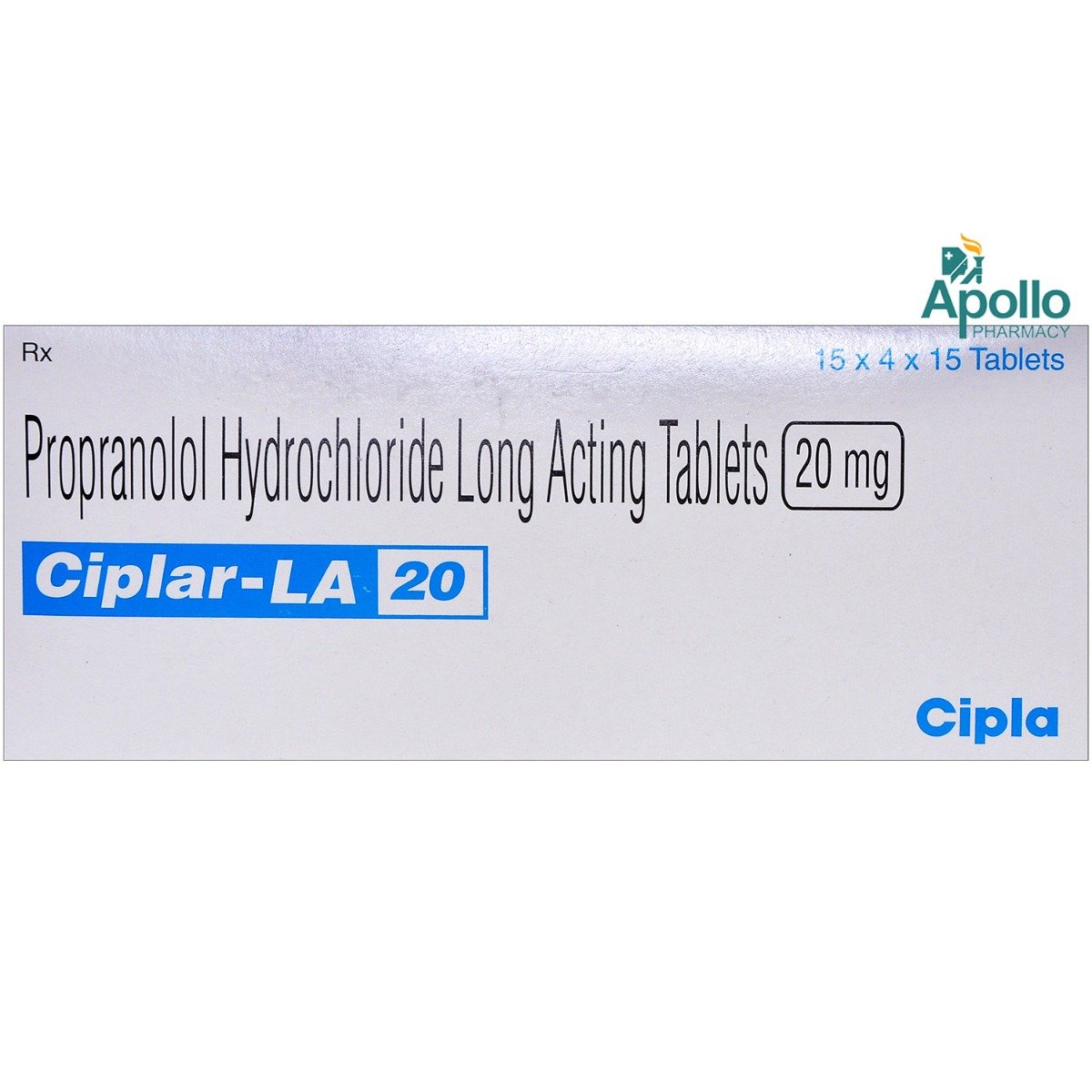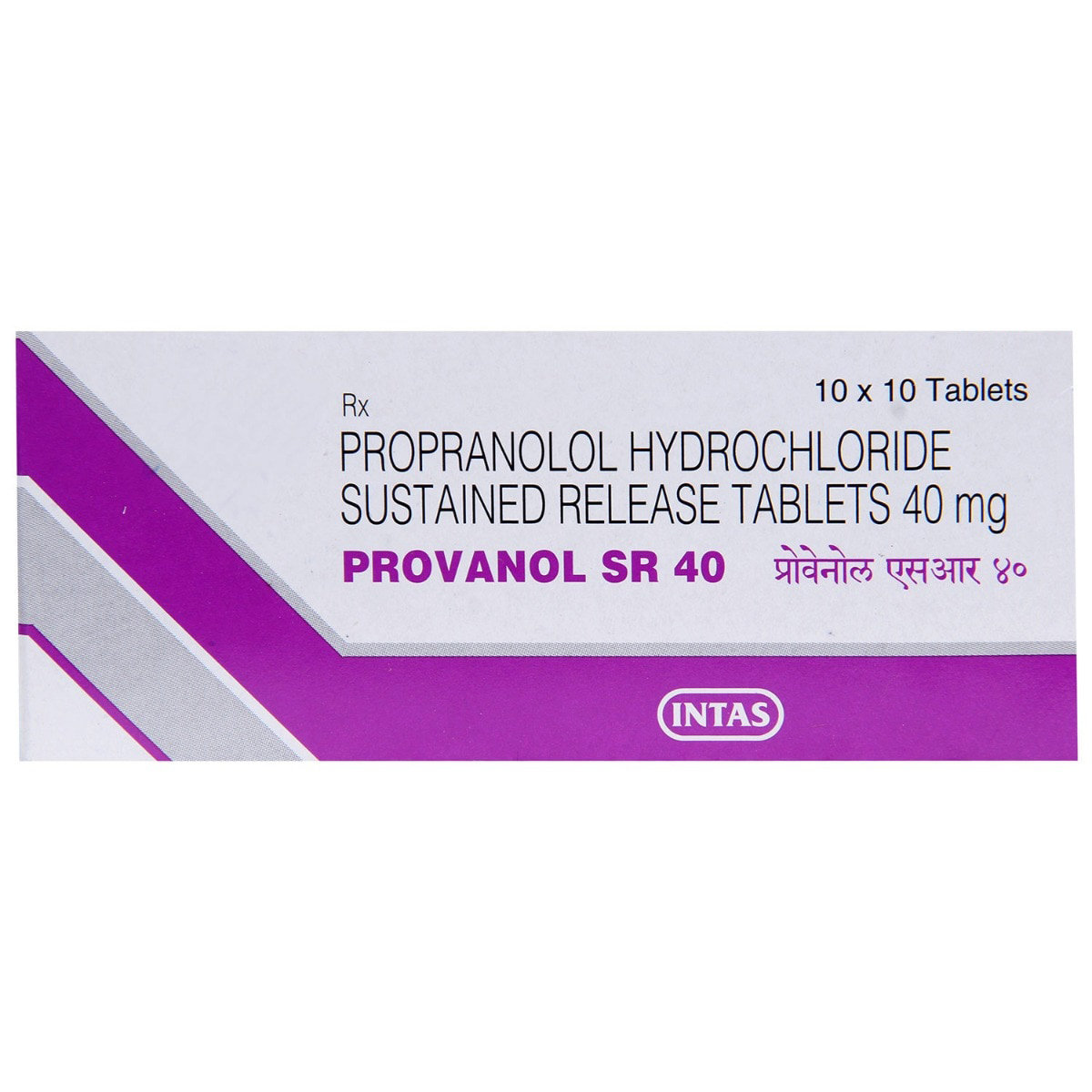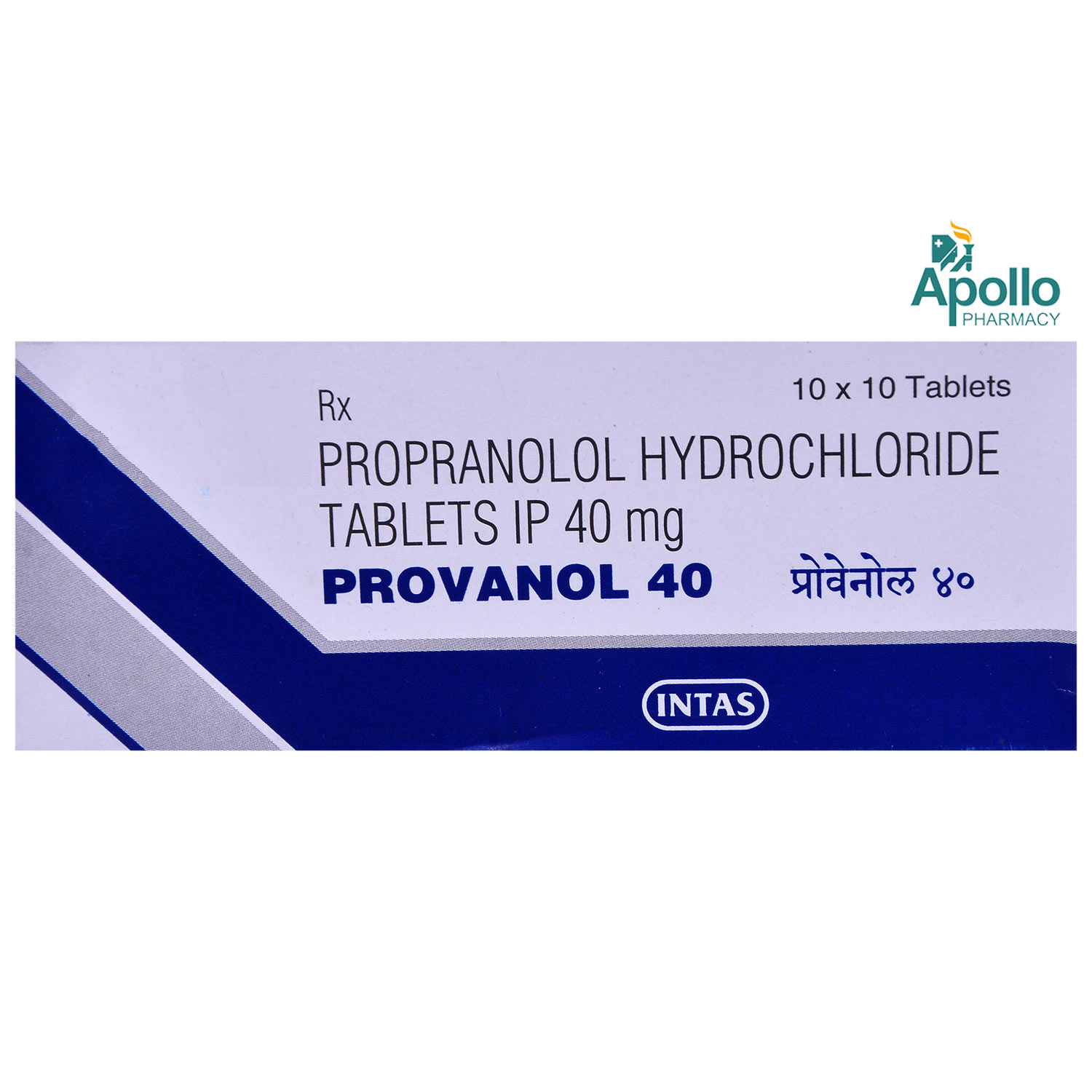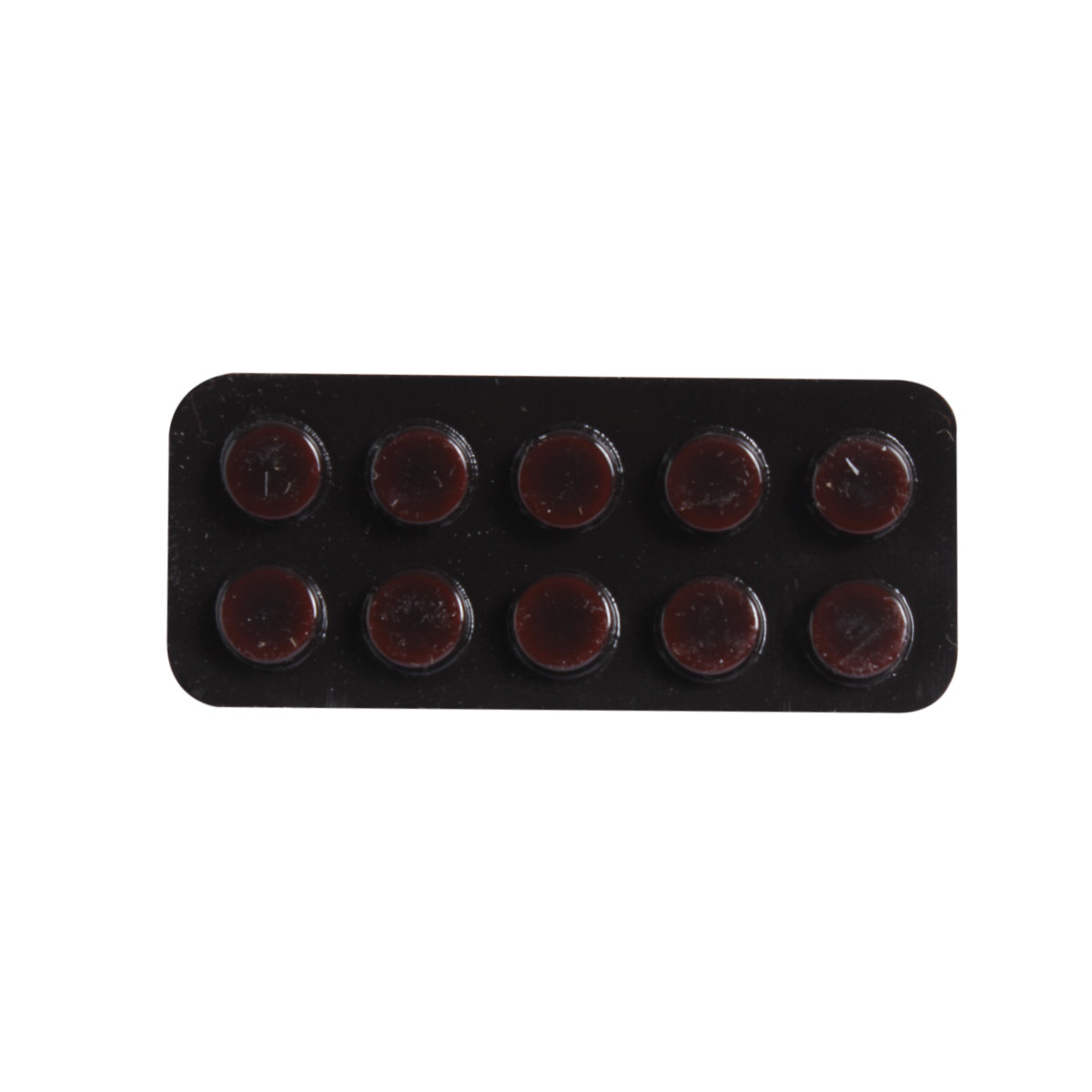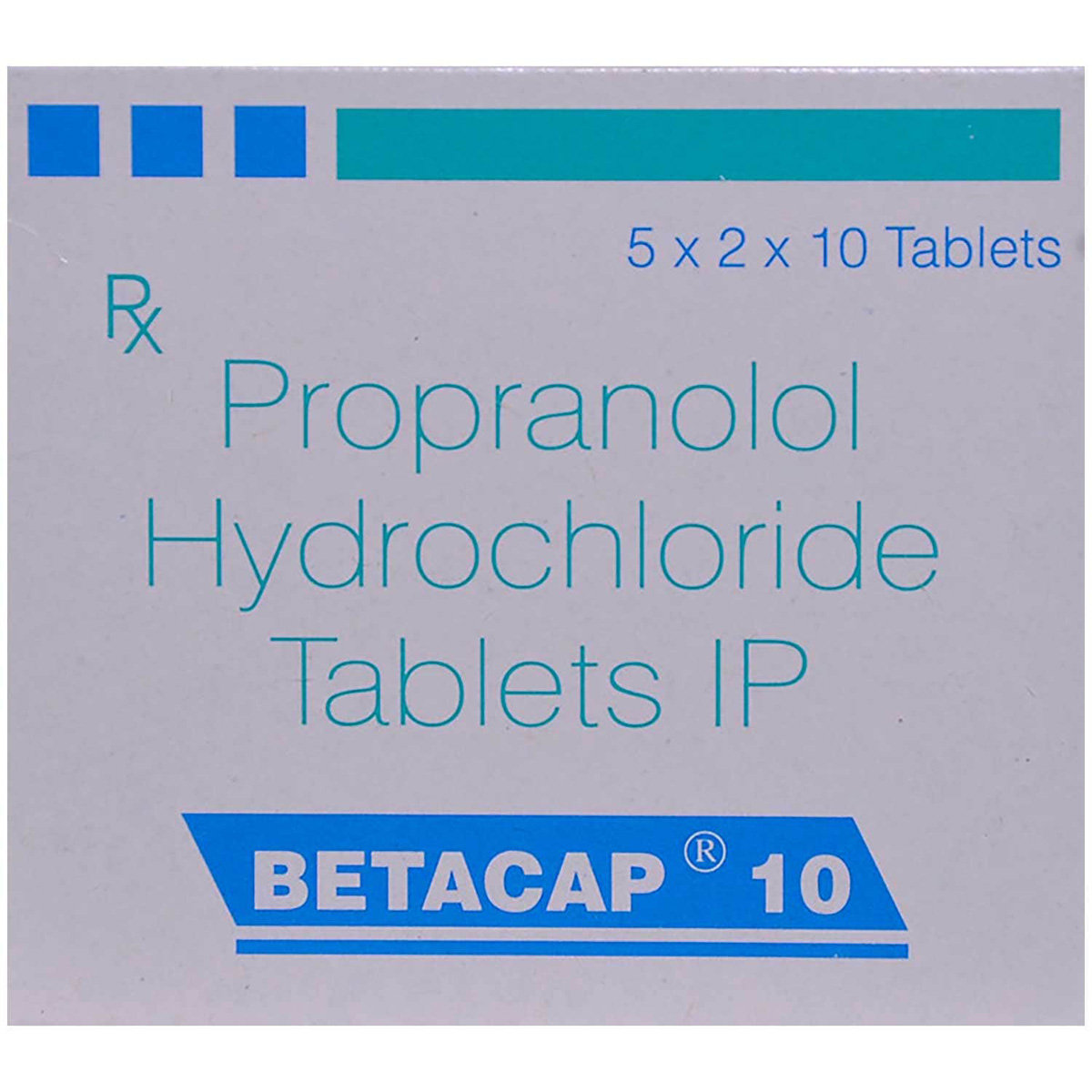Propranolol Hydrochloride
About Propranolol Hydrochloride
Propranolol Hydrochloride belongs to a group of medicines called beta-blockers used to treat high blood pressure (hypertension), heart-related chest pain (angina), and heart rhythm disorder (arrhythmia). It may also help treat migraine headaches and tremors (fits), protect the heart after a heart attack. High blood pressure is a condition in which the blood exerts elevated pressure on blood vessel's walls, leading to various cardiovascular complications like the risk of heart attack and stroke in the future.
Propranolol Hydrochloride contains propranolol hydrochloride, which plays a vital role in relaxing and widening the blood vessels. This lowers blood pressure and helps in reducing the risk of having a stroke, heart attack, and other heart problems in the future. Propranolol Hydrochloride makes it easier for the heart to pump blood throughout the body by slowing down the heart rate. Thereby, treats arrhythmia and lowering blood pressure.
Propranolol Hydrochloride can be taken orally with or without food or as directed by your physician. Swallow the whole tablet with a glass of water. Do not crush, chew or break it. Propranolol Hydrochloride may cause certain common side-effects like fatigue, breathlessness, nausea, vomiting, diarrhoea, and sleep disturbances. These side effects are usually mild and short-lived. However, if the side effects are persistent, reach out to your doctor.
Do not stop taking Propranolol Hydrochloride without talking to your doctor. Stopping Propranolol Hydrochloride may cause changes in your heart rhythm and blood pressure. Consult your doctor before taking Propranolol Hydrochloride if you are pregnant. Avoid breastfeeding while taking Propranolol Hydrochloride. Propranolol Hydrochloride may cause dizziness, so drive with caution. Avoid alcohol consumption while taking Propranolol Hydrochloride as it may cause increased dizziness. Keep your doctor informed about your health condition and medications to rule out any interactions.
Uses of Propranolol Hydrochloride
Medicinal Benefits
Propranolol Hydrochloride belongs to a group of medicines called beta-blockers used to treat high blood pressure (hypertension), heart-related chest pain (angina), and heart rhythm disorder (arrhythmia). It may also help treat migraine headaches and tremors (fits), protect the heart after a heart attack. Propranolol Hydrochloride plays a vital role in relaxing and widening the blood vessels. This lowers blood pressure and helps in reducing the risk of having a stroke, heart attack, and other heart problems in the future. Propranolol Hydrochloride makes it easier for the heart to pump blood throughout the body by slowing down the heart rate. Thereby, treats arrhythmia and lowering blood pressure.
Directions for Use
Storage
Side Effects of Propranolol Hydrochloride
- Dizziness
- Fatigue
- Cold hands/feet
- Constipation
- Difficulty in sleeping
- Nightmares
Drug Warnings
Propranolol Hydrochloride should not be used in cardiogenic shock (heart unable to pump sufficient blood) and heart failure condition. Do not stop taking Propranolol Hydrochloride without talking to your doctor first. Stopping Propranolol Hydrochloride may cause changes in your heart rhythm and blood pressure. Your doctor will lower your dose gradually over a period of time to help prevent these symptoms. You should not use Propranolol Hydrochloride if you have a very slow heartbeat, asthma, serious heart condition (sick sinus syndrome) or any heart blockage. Before taking Propranolol Hydrochloride you should tell the doctor if you have any muscle disorder (myasthenia gravis, rhabdomyolysis), breathing problem (COPD, bronchitis, emphysema), low blood sugar level (hypoglycaemia), low blood pressure (hypotension), depression, previous heart failure, liver/kidney disease, thyroid hormone disorder, adrenal gland cancer or problems with circulation (Raynaud’s syndrome). Intake of Propranolol Hydrochloride may mask symptoms of diabetes. So tell your doctor if you have type 1 or type 2 diabetes. It may also worsen your symptoms of congestive heart failure and bradycardia (slow heart rate less than 60). You should regularly monitor your prothrombin time if Propranolol Hydrochloride is taken with anti-coagulants like warfarin.
Drug Interactions
Drug-Drug Interactions: Propranolol Hydrochloride may interact with beta-blockers (acebutolol, atenolol, bisoprolol, carteolol, esmolol, metoprolol, nadolol, nebivolol or sotalol), blood pressure-related medicines (lisinopril, enalapril, diltiazem, prazosin, terazosin, doxazosin), asthma medications (theophylline), and pain killers. If you are using these medicines tell your doctor before taking Propranolol Hydrochloride.
Drug-Food Interactions: Propranolol Hydrochloride may interact with grapefruit and protein-enriched foods. Therefore, avoid consuming grapefruit and its juice while taking Propranolol Hydrochloride.
Drug-Disease Interactions: Propranolol Hydrochloride may have interaction with disease conditions such as diabetes, thyroid disease, asthma, cardiogenic shock (when the heart fails to pump required blood to the body), heart valve problem (stenosis), low blood pressure (hypotension), coronary heart disease, liver disease or heart failure.
Drug-Drug Interactions Checker List:
Safety Advice

Alcohol
cautionYou are recommended not to consume alcohol along with Propranolol Hydrochloride to avoid the unpleasant side effects. Consuming alcohol might cause increased dizziness.

Pregnancy
cautionPropranolol Hydrochloride is not recommended during pregnancy unless your doctor considers it essential. Your doctor will weigh the benefits and any potential risks before prescribing them to you.

Breast Feeding
cautionIt is not recommended to breastfeed while taking Propranolol Hydrochloride. However, contact your doctor if you have any concerns.

Driving
cautionPropranolol Hydrochloride is unlikely to affect your ability to drive or to operate machinery. However, some people may occasionally feel dizzy or tired when taking Propranolol Hydrochloride. Avoid driving or operating machinery unless you are alert.

Liver
cautionPropranolol Hydrochloride should be taken with caution, especially if you have a history of liver disease. The dose may have to be adjusted by your doctor.

Kidney
cautionPropranolol Hydrochloride should be taken with caution, especially if you have a history of kidney disease. The dose may have to be adjusted by your doctor.

Children
unsafeThe safety and efficacy of Propranolol Hydrochloride in children have not been established. Propranolol Hydrochloride is not recommended in children unless prescribed by a child specialist.
Habit Forming
Diet & Lifestyle Advise
- Do regular physical activity or exercise for at least 150 minutes per week or about 30 minutes most days of the week. Doing this can help lower your raised blood pressure by about 5 mm of Hg.
- Opt for a diet rich in whole grains, fruits, vegetables, and low-fat dairy products.
- Limit intake of sodium chloride (table salt) in your daily diet to 2300 mg per day. Less than 1500 mg is ideal for most adults.
- If you are taking alcohol then only one serving for women and two servings for men is advisable.
- Quitting smoking is the best strategy to lower the risk of heart disease.
- Avoid chronic stress as it can raise your blood pressure. Try to enjoy and spend time with your loved ones to cope with stress and practice mindfulness techniques.
- Monitor your blood pressure daily and if there is too much fluctuation then immediately contact your doctor.
- Try to include heart-healthy omega 3 fatty acid containing food drinks in your daily diet. You can also use low-fat cooking oil like olive oil, soybean oil, canola oil and coconut oil can help in lowering your elevated blood pressure.
Special Advise
- Propranolol Hydrochloride may cause low blood sugar levels. Check your blood sugar levels regularly and consult a doctor if you notice any changes.
- Tell a doctor straight away if you have shortness of breath with a cough that gets worse when you exercise (like walking upstairs), swollen ankles or legs, chest pain, or an irregular heartbeat – these are signs of heart problems.
Patients Concern
Disease/Condition Glossary
Hypertension: Hypertension is a condition in which the pressure in the blood vessels is high. The blood exerts elevated pressure on the walls of blood vessels leading to high blood pressure. Raised blood pressure can cause chest pain (angina) and heart attack (when blood supply to the heart is blocked). Additionally, high blood pressure also causes brain damage (stroke) and kidney failure. High blood pressure can be diagnosed with the help of a blood pressure monitor or sphygmomanometer. Systolic pressure is the pressure when the heart pumps blood out. On the other hand, diastolic pressure is the pressure when your heart is at the resting stage between heartbeats. Ideal blood pressure should be between 90/60 mm of Hg and 120/80 mm of Hg.
FAQs
No, it is a prescribed drug, given by a physician for preventing specific medical conditions. Taking it on your own can cause unwanted side effects.
It is advised to continue taking Propranolol Hydrochloride even after your blood pressure is under control or becomes normal as blood pressure can shoot up at any time. If you have any discomfort, please consult your doctor immediately.
When you are taking a beta-blocker, your health care provider may recommend that you limit your consumption of high potassium foods including bananas, papaya, tomato, avocado and kale.
Your doctor may probably tell you to stop taking Propranolol Hydrochloride as it lowers blood pressure when combined with general anaesthesia before surgery. Inform your doctor about all the prescription and OTC drugs that you are using.
You should try to avoid or limit intake of alcohol along with Propranolol Hydrochloride, as it can lower your blood pressure leading to dizziness or drowsiness.
Propranolol Hydrochloride is safe if used in the dose and duration recommended by your doctor. Take it precisely as directed, and do not skip any dose. Follow your doctor's guidelines carefully and inform your doctor if any of the side effects disturb you.


